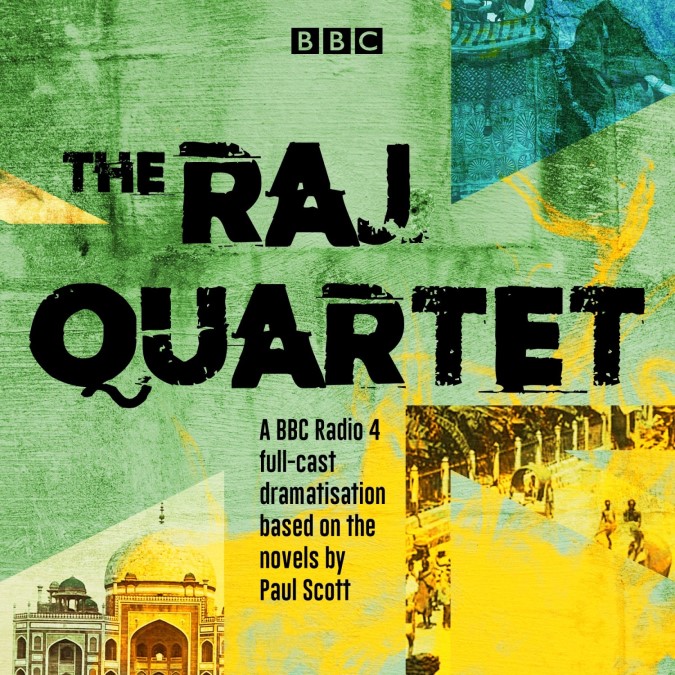Members get information about when streams/downloads become available, as well as accessing podcast RSS feeds for freely-available content to make listening to great shows a breeze, Register Here
India 1942: everything is in flux. World War II has shown that the British are not invincible and the self-rule lobby is gaining many supporters. Against this background, Daphne Manners, a young English girl, is brutally raped in the Bibighat Gardens. The racism, brutality and hatred launched upon the head of her young Indian lover echo the dreadful violence perpetrated on Daphne and reveal the desperate state of Anglo-Indian relations. The rift that will eventually prise India – the jewel in the Imperial Crown – from colonial rule is beginning to gape wide.
India, August 9th 1942. The morning brings raids and the arrest by British police of Congress Party members. Amongst the prisoners is the distinguished ex-Chief Minister Mohammed Ali Kasim. Loyal to the party’s central vision of a unified free India, his incarceration is a symptom of the growing deterioration of Anglo-Indian relations.
For the long-serving British family, the Laytons, the political and social ramifications are immediate, disturbing and tragic. Some, like Ronald Merrick, believe that true intimacy between the races is impossible; others, such as Sarah Layton, struggle to come to terms with their Anglo-Indian past. With growing confusion and bewilderment, the British are forced to confront the violent and often brutal years that lie ahead of them.
It is the last, bitter days of World War II and the British Raj in India is crumbling. Ensconced in the Indian Hill Station of Pankot are the English wives, mothers, daughters and widows of the officers embroiled in the ongoing conflict. With their old beliefs and assumptions under increasingly virulent attack, all eyes are upon Captain Merrick and the British military to protect them in this troubled time. But Merrick, though outwardly a consummate professional, is brutal and corrupt, and not even his machinations can stop the change that is swiftly and inevitably approaching, change which is increasingly undermining the old myth of British invincibility…
The British Raj in India is in its final days. But the fall of the Empire is both the end of one era and the beginning of another. For the Hindus and Muslims, the political reality signals inevitable post-war recriminations and future territorial wrangles. For Guy Perron, Field Sergeant and historian, these last days are a time to reflect on the legacy the British has left behind in India. And for the British families still residing in India, decisions about their future must be made and final goodbyes must be said, all against the backdrop of one of the most turbulent periods of social change the world has ever seen.
Episode List
- 1×1 – The Jewel in the Crown
- 1×2 – The Jewel in the Crown
- 1×3 – The Jewel in the Crown
- 2×1 – The Day of the Scorpion
- 2×2 – The Day of the Scorpion
- 2×3 – The Day of the Scorpion
- 3×1 – The Towers of Silence
- 4×1 – A Division of the Spoils
- 4×2 – A Division of the Spoils


















